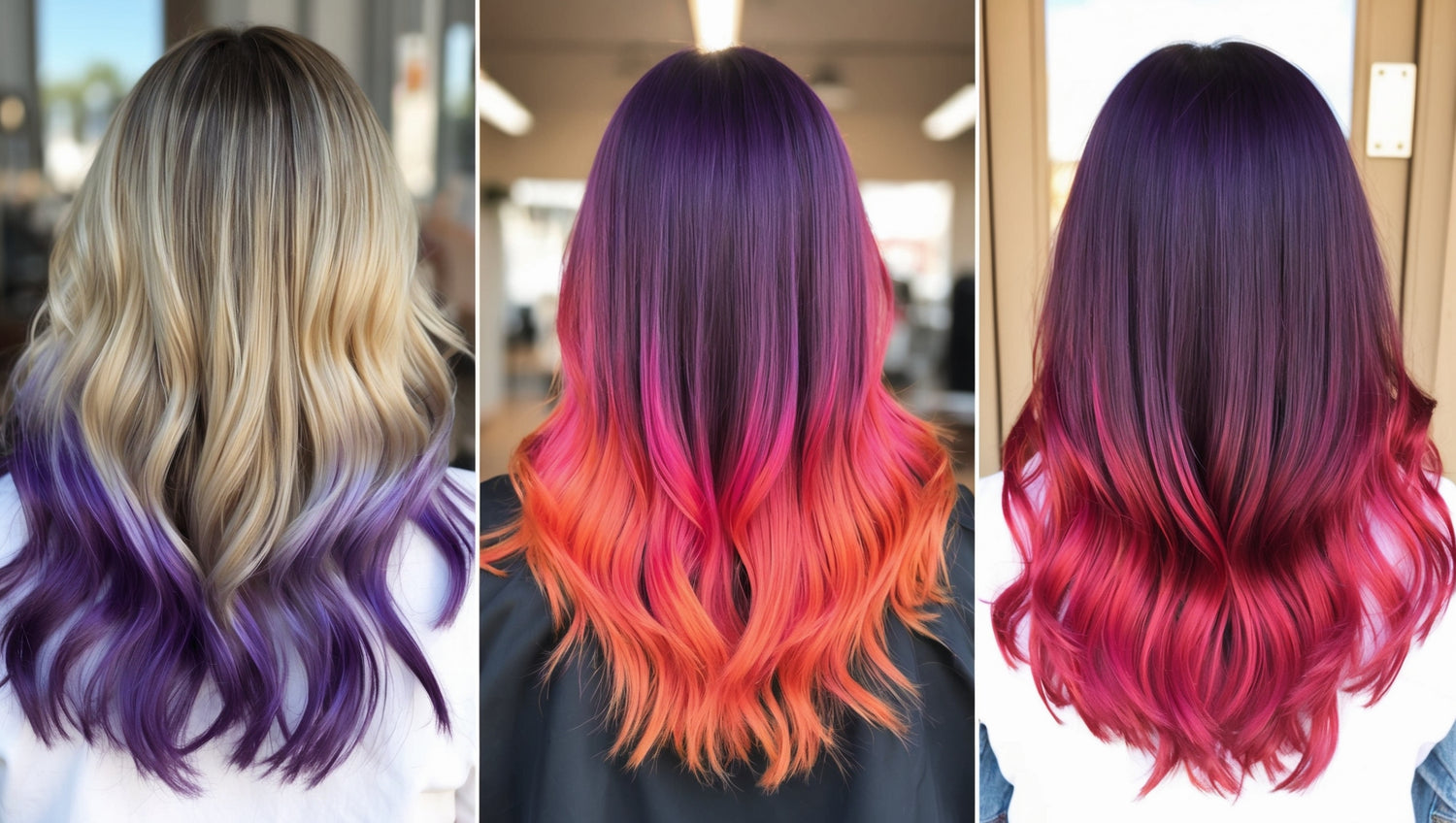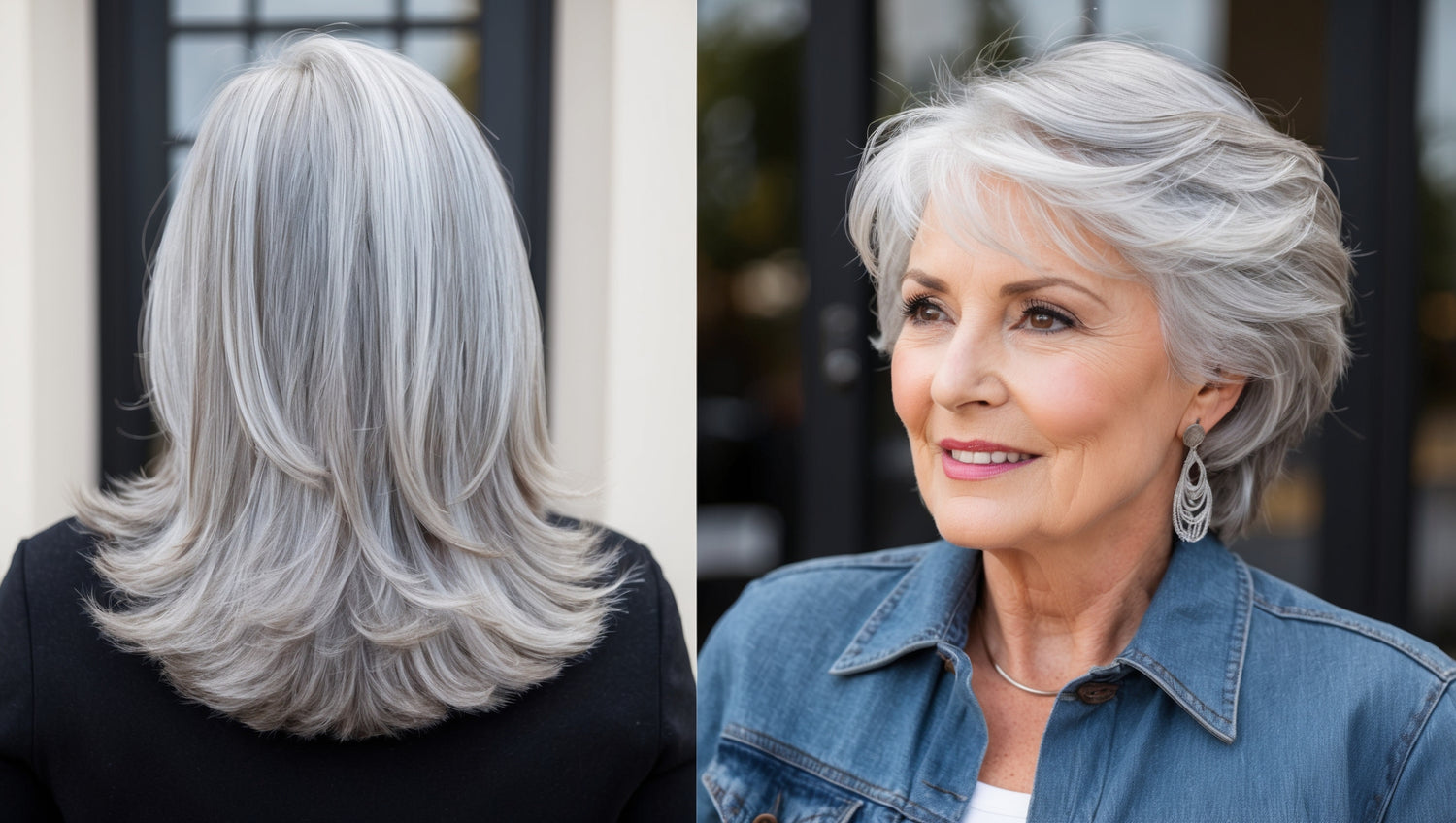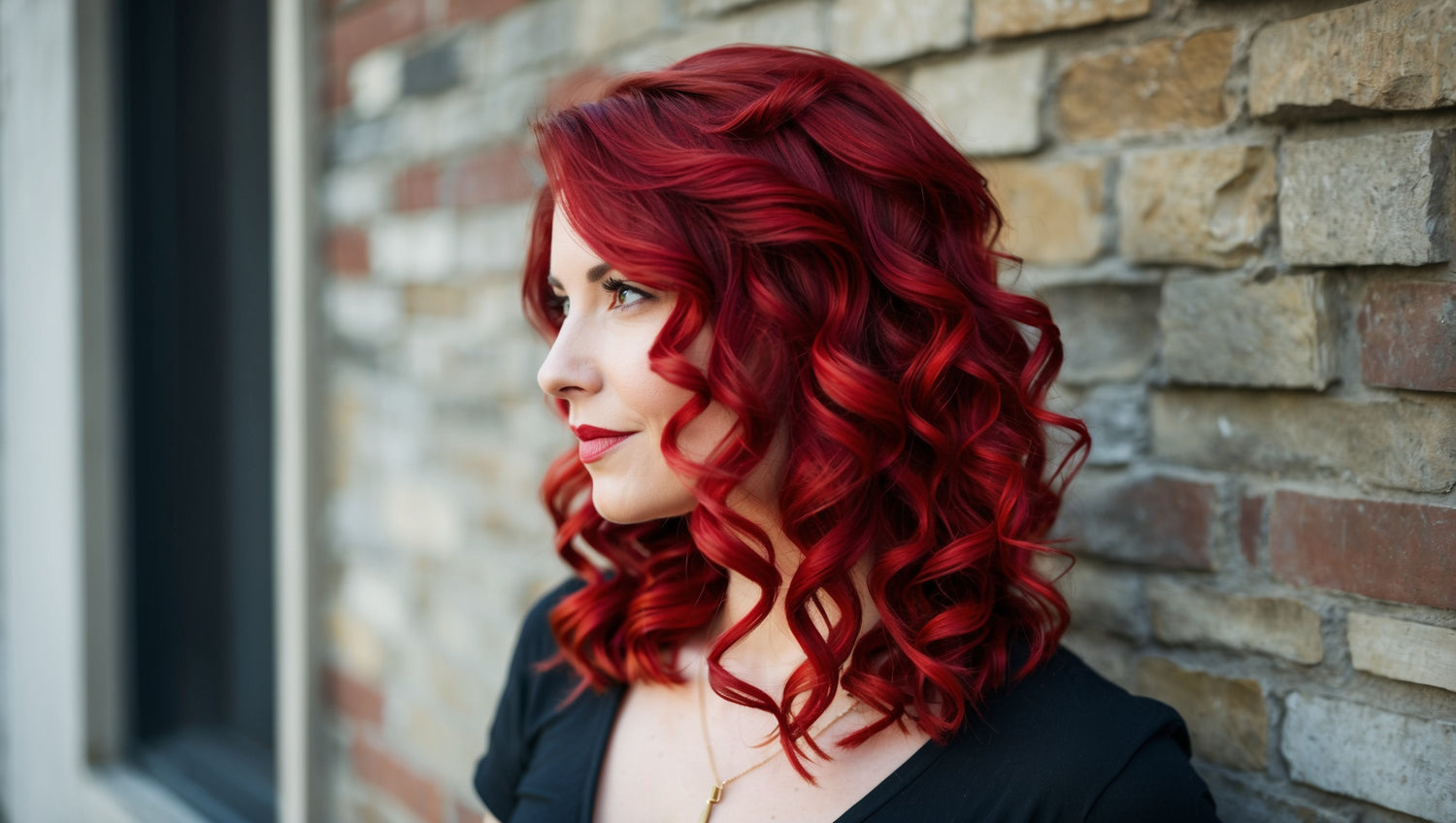WHY DOES MY SCALP ITCH?
EXTERNAL INFLUENCES THAT CAN LEAD TO IRRITATED SCALP ARE THE FOLLOWING:
Temperature changes or seasonal changes
Particularly cold air in winter, but also strong heat in summer, can cause your scalp to itch. High levels of UV radiation can also cause irritated scalps. You don't necessarily only have to be exposed to high UV radiation in summer. Even in winter, the sun can shine so strongly that it irritates your scalp.
Too much styling
Washing too often and blow-drying your hair at high temperatures can promote dry scalp. You may also have an allergic reaction to a certain product. Then you should test yourself and replace individual products. Maybe your scalp doesn't tolerate a certain product.
DEFICITIES AND ILLNESSES THAT CAN LEAD TO IRRITATED SCALP ARE THE FOLLOWING:
Unhealthy lifestyle
Physical deficiency symptoms and harmful habits can also be responsible for itchy heads. Your hair is one of the first things on your body to go, for example, when you smoke, stress or malnutrition. Smoking dries out your skin and causes inflammation. Stress causes your body to release hormones such as adrenaline, which causes your muscles to tense up. The increased tension can also lead to an itchy scalp.
With radical diets and significant weight loss within a short period of time, your body is usually lacking vitamins. This vitamin deficiency can manifest itself in an itchy scalp.
Unbalanced hormonal system
Hormonal changes are also often the cause of an itchy scalp. During menopause, puberty or pregnancy, the body is subject to strong hormonal fluctuations. This can lead to increased or decreased sebum production. If there is too much fat, larger scales or even fungi can form. A fungus can also convert the excess fat into aggressive fatty acids. This ensures an even flakier scalp.
If sebum production is too low, the scalp lacks moisture and oil. This can also cause itching.
Fungus on the scalp
Hairless areas on the head, with or without dandruff, are typical signs of a fungal infection on the scalp. The so-called head fungus is a contagious fungal disease that can cause itching.
lice
Red, itchy scalp is a common sign of lice infestation. A lice comb can be used to detect lice and nits.
Neurodermatitis
Neurodermatitis is a chronic skin disease that can affect various parts of the body. The scalp can also be affected. Severe itching of the scalp is an initially rather ambiguous symptom. Finally, an itchy scalp can also indicate other deficiencies. Other clearer signs include weeping eczema, whitish larger scales, thickened skin and crust formation on the head.
WHICH SHAMPOO FOR AN ITCHY SCALP?
With the right care, itchy scalp can be counteracted or alleviated.

The Balance Eco Shampoo for sensitive and dry scalps is particularly gentle on the scalp. It contains many natural ingredients and cleanses your hair thoroughly but gently. The shampoo does not contain any silicones, but does contain washing-active substances based on sugar. This means that foam formation is rather low. The sugar and coconut surfactants gently cleanse your hair and reduce skin redness and itching. Glycerin and urea provide your hair with moisture and regulate the hair's moisture balance. Urea also inhibits itching. Biotin strengthens the hair and ensures well-groomed shine. Lactic acid stabilizes the pH value of the skin. This also has positive effects on the acid mantle and the skin flora.

Balance Anti Dandruff Shampoo for flaky scalp helps against scalp inflammation and dandruff. The piroctone olamine it contains is a proven anti-dandruff agent and also helps against mold and yeast.

Balance Anti Oil Shampoo for oily hair helps against excessive sebum production. It not only moisturizes the skin, but also relieves skin irritations. The shampoo is also intended to help you reduce the number of times you wash your hair. The zinc sulfate it contains promotes wound healing and has a slightly disinfecting effect. In addition, common yarrow and white-berry mistletoe soothe the damaged scalp and skin irritations.





